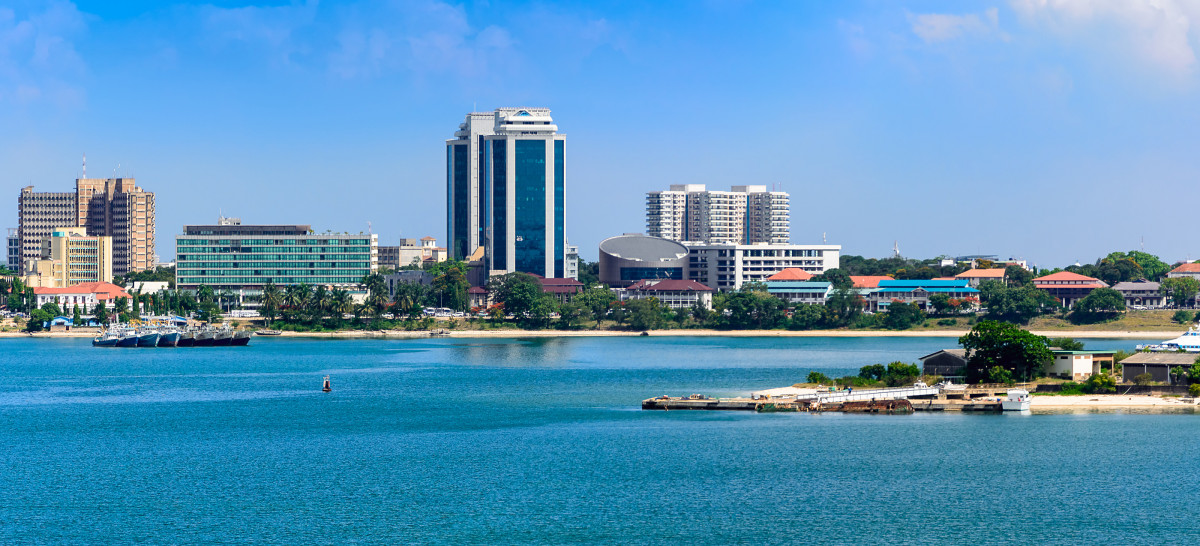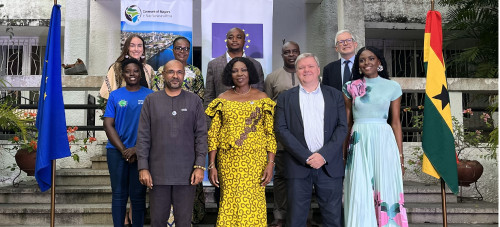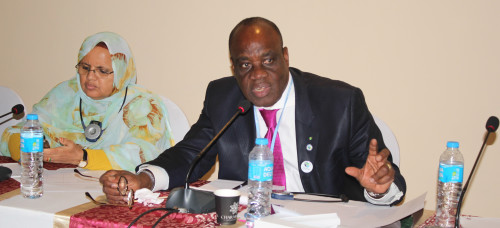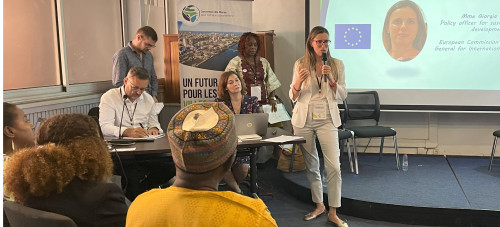Putting African voices at the center of COP26
Published: 6 Sep 2021

The world is waiting with bated breath to hear from world leaders on their climate action progress since the Paris Agreement, but where does Africa fit in?
The much-anticipated United Nations Climate Change Conference of the Parties (COP26) will be held in Glasgow from 31 October – 12 November 2021. The summit is a considerable milestone and arguably the most crucial climate moment since 2015, at COP21, when the historic Paris Agreement was signed by 196 countries. The African continent is seen, by many, to be a critical part of this year’s summit. The belief is that COP26 will only succeed if Africa is at the heart of the negotiations.
General expectations for COP26
COP26 marks the fifth summit since the Paris Agreement was signed and according to the treaty countries must update their Nationally Determined Contributions (NDCs). Earlier this year UN Climate Change published its Initial NDC Synthesis Report, which shows that nations must intensify efforts and submit stronger, more ambitious climate action plans in 2021 in order to achieve the Paris Agreement goal of holding the global temperature increase to 2°C, ideally 1.5°C, by the end of the century. This is further supported by the findings from the latest IPCC report which warns that every inhabited region on earth is already being negatively affected by the impacts of climate change.
It is expected that COP26 will further interrogate the collective progress in working toward the ambitious goals laid out in the Paris Agreement to keep 1.5 degrees within reach and set definite plans to achieve these targets. Delegates will need to investigate the best methods to assess progress on adaptation and resilience efforts as there are few established metrics for these aspects of climate action. While this is straightforward when it comes to assessing progress on mitigation, it is less straightforward when considering standards to measure adaptation to climate change.
Delegates will need to assess the loss and damage brought on by climate change, several cities across the world have seen extreme climate events in recent months, for example, the catastrophic floods that swept through western Germany last month. Adaptation metrics are essential in order to assess vulnerability, risk, resilience or climate impacts, to track implementation of adaptive responses and to monitor and measure adaptation results. Adaptation and resilience are different in every country; there is no single solution for effective adaptation and resilience. Looking specifically at developing countries, a concern is accessing funding in order to rebuild communities already affected by these climatic events. This links to the broader discussion around climate finance flows from developed countries to developing countries.
Without climate finance, necessary climate action is not possible
Article 9 of the Paris Agreement stipulates that developed countries that have signed the Treaty shall provide financial resources to assist developing country signatories with both mitigation and adaptation efforts. The Agreement urges developed country signatories to scale up their financial support with a concrete roadmap to achieve the goal of jointly providing USD 100 billion annually by 2020 for mitigation and adaptation. Delegates will need to reflect on this commitment and discuss how it can be maintained.
Due to the Covid-19 pandemic a lot of climate finance has been derailed and this needs to be put back on track. COP26 will set out new long-term targets for climate finance beyond 2020 with the hope that this will help African states as well as cities access the funds needed to support the implementation of the NDC’s. LoCS4Africa Virtual Congress 2020 , The key forum for leaders to share strategies on climate action and financing in Africa, provided an opportunity for government, academia, private sector and civil society to meet and discuss the critical issue of climate finance during 2020.
In the words of Mr Rafael Tuts, Director of the Global Solutions Division of UN-Habitat, "Climate action requires bankable action. This is a challenge as local institutions battle with capacity. It's imperative that we support cities to develop financial options from the onset and develop their own financial mechanisms."
At COP26, negotiators must recognize that the conditional actions in Nationally Determined Contributions (NDCs) represent the most ambitious contributions to the Paris Agreement on climate change, and these require climate finance resources that should be accessible through both bilateral and multilateral channels. Without this recognition and firm action on enabling finance, the goals of the Paris Agreement will not be met.
Putting Africa at the heart of discussions at COP26
Africa contributes the least to total global greenhouse gas (GHG) emissions, only about 4 percent, but it is the most vulnerable to the impacts of climate change and needs support. For this reason, Africa needs to be at the forefront of adaptation and resilience conversations. Adaptation projects and building climate resilient infrastructure are essential for Africa to prevent further loss of livelihoods due to extreme climate events like cyclones and droughts.
At COP26 countries will launch an adaptation goal and a strategy to achieve it and this presents an opportunity to recognise and address Africa’s unique needs. There is a need for developed countries to mobilise and provide climate finance resources for environmentally sound technologies appropriate for the African context. A focus point for Africa will be the need to protect its ecosystems and livelihoods, building adaptive capacity and resilience as well as exploring mitigation benefits. There is also hope that nature-based solutions will be at the forefront in the proposed implementation strategies.
In an article published by the UN, Mr. Tanguy Gahouma-Bekale, Chair, African Group of Negotiators on Climate Change said “there should be an increase in international support for Africa’s adaptation and mitigation programmes and initiatives. Current reductions in official development assistance by developed countries will weaken the capacity of poor countries to fight the climate crisis.”
It is foreseen that several African leaders may not be able to attend COP26 in-person due to travel constraints brought on by the Covid-19 pandemic. There is therefore a need for collective action as leaders will have to rely on organisations, negotiators, networks and representatives that are present to ensure the Africa’s needs are communicated. To enable this, a number of virtual events are set to take place in the lead-up to COP26. One such event of importance for African city leaders is the Covenant of Mayors Day, as part of the Climate Chance Summit 2021, where city leaders will be given the opportunity to raise critical needs and African solutions that will feed into COP26 through ICLEI, as the LGMA focal point for the UNFCCC.
Climate emergency: it’s time to act, now
The recent report from the UN Intergovernmental Panel on Climate Change (IPCC) sounded the alarm for urgent climate action. The UN secretary-general described the report as a “code red for humanity”. This science-based data detailed in this report plays a crucial role in setting climate action targets and will be a tool for negotiators at COP26. The report shows, “climate change is affecting every inhabited region across the global” and all stakeholders need to unite and take action.
The critical role of cities
In order to renew and increase ambition, national governments will be looking to cities to support them in increasing ambition and implementing tangible action. Climate change is a collective problem that requires a collective solution; it is critical to adopt a whole of society approach in this decade of action. As Mr. Ovais Sarmad, Deputy Executive Secretary of the UNFCCC, so aptly captured during the opening ceremony of LoCS4Africa Virtual Congress 2020, "Perhaps nowhere is the work of climate action more important than in our cities. This is where the climate battle will be won or lost."





